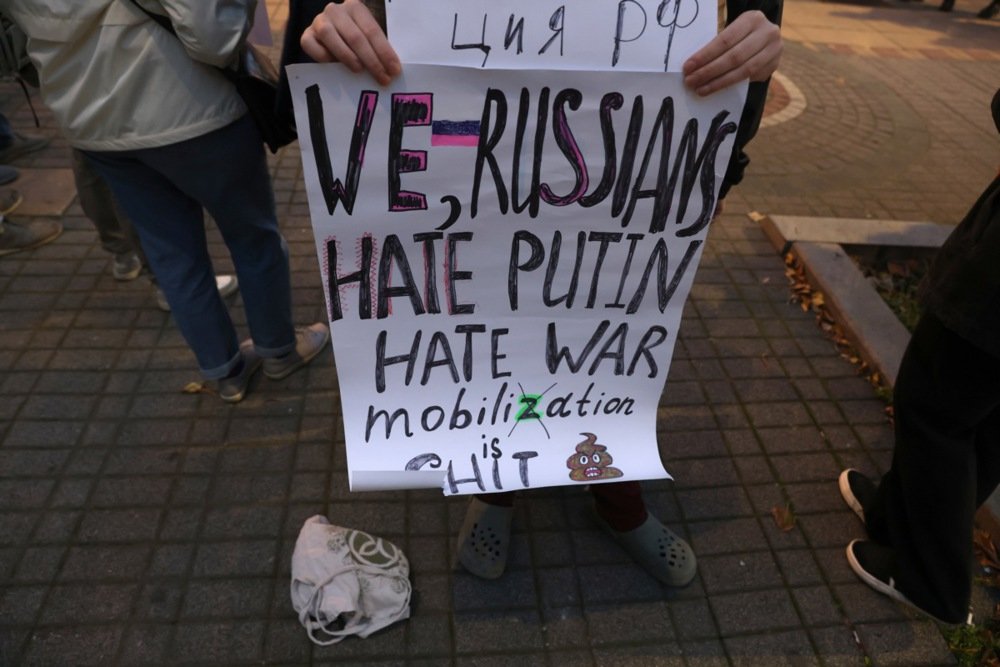
A man carries a banner reading ‘We Russians hate Putin, hate war’, during a protest against Russia invasion of Ukraine, in Belgrade, Serbia, 10 October 2022. Photo: EPA-EFE/ANDREJ CUKIC
Russia’s Interior Ministry has drafted a new Strategy to Counter Extremism prescribing the creation of a new database of citizens who have left the country to join “extremist organisations”, according to the Russian government’s website on Monday.
One recommendation in the strategy was the creation of a database to include individuals who had left Russia to “undergo training in foreign centres of unfriendly states” as well as to “participate in extremist organisations”.
The document offered no further details on the criteria for inclusion in the database or the potential consequences for those whose names were added to it. It did, however, identify Ukrainian “neo-Nazis” and “radical nationalist armed groups” as major “extremist” threats to Russia’s security, as well as “hybrid wars” waged by “unfriendly countries”.
The strategy also proposes defining “Russophobia” as an “unfriendly, biased, hostile attitude towards Russian citizens, the Russian language, and Russian culture” which it says is manifested both by “individuals and political forces” as well as in “discriminatory actions” by states the Russian government considers “unfriendly”.
The draft strategy is currently undergoing an “independent anti-corruption review” and will remain online and open to suggestions submitted by the public until 5 August.
Last week, independent news outlet The Bell reported that over 650,000 Russians had left the country for good since Vladimir Putin launched his full-scale invasion of Ukraine in February 2022, with Armenia, Kazakhstan and Israel the most popular destinations for Russian émigrés.
Earlier in July, Russian independent news site Agentstvo revealed that a provider of leaked personal data had compiled an unofficial database of Russians who left the country since February 2022, in which each individual was grouped by whether they had left Russia due to the outbreak of war in February 2022, the Russian government’s announcement of “partial mobilisation” in September 2022, or the Wagner Group’s failed mutiny in June 2023.
